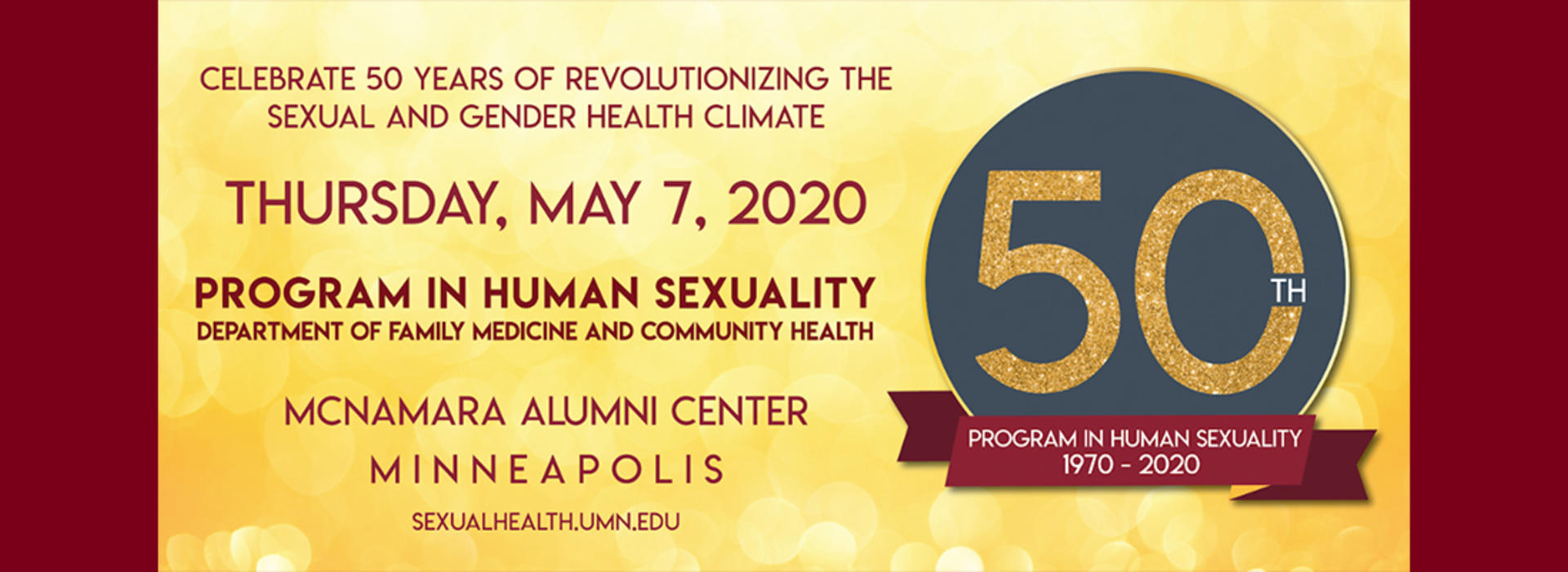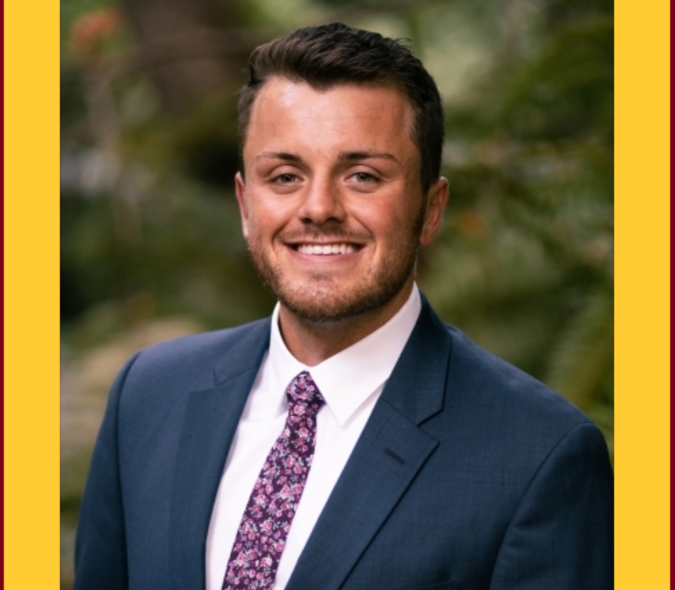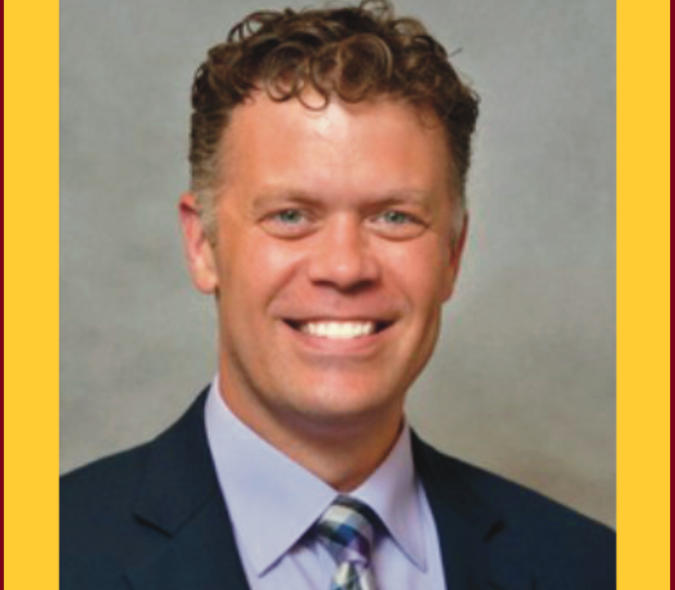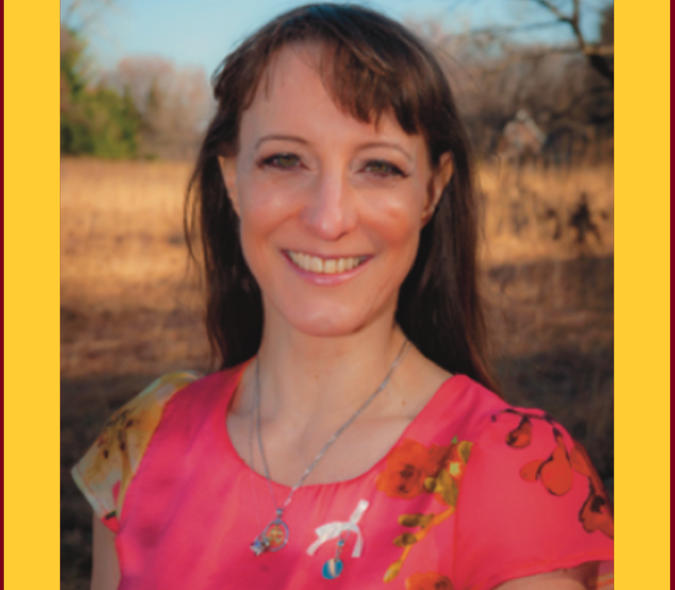
ALUMNI NEWS | The Program in Human Sexuality Celebrates 50 Years
In 2020, the University of Minnesota's Program in Human Sexuality (PHS) at the University of Minnesota Medical School is celebrating its 50th year, reflecting on what they have accomplished and looking to what the future holds for sexual and gender health.
The PHS is an internationally renowned powerhouse led by some of the world's foremost experts in the treatment of sexual and gender health. Here, researchers also engage in critical sexual health projects, and educators design curricula that change the way medical professionals learn about human sexuality. Many faculty of the PHS are also therapists who use their research to inform the best models of care for a myriad of sexual and gender health concerns.
The PHS wasn't always the leader it is today. It was 1968 when a young American Lutheran Church (ALC) pastor, James Siefkes, began to work on issues of human sexuality. He organized the first SAR: Sexual Attitude Reassessment. These two-day seminars were designed to desensitize people to a broad range of human sexual activity so they could better counsel, treat, and educate patients about various sexual concerns. The experience included watching sexually explicit films on human sexuality and then participating in small and large group-facilitated discussions. One of the first to attend was Ted Cole, MD, of the University of Minnesota Medical School. Dr. Cole recommended teaching the SAR to all University medical providers in order to better serve their patients. Rick Chilgren, MD, a professor with the University of Minnesota Medical School, was responsible for creating the human sexuality infrastructure at the University of Minnesota with a SAR as its learning cornerstone. Thus, PHS was born.
In August of 1970, the University hosted its first SAR seminar, attended by such notables as Donald Hastings, MD, head of the Department of Psychiatry, and Jack Sciarra, MD, PhD, head of Obstetrics and Gynecology. Other University personnel included Neal Gault, MD (who would become dean of the Medical School two years later); Pearl Rosenberg, PhD, dean for Student Affairs in the Medical School; Murray Rosenberg, MD; Paul Cashman, PhD, vice president for Student Affairs; and Titus and Carol Belleville from the Department of Psychiatry.
These open-minded individuals gathered to watch explicit sex films, which were interspersed with lecturers speaking on the various sexual activities and sex-related problems seen in the films. It was these people, University personnel in positions of power, who realized that there was a need for study and education in the area of human sexuality, and that the SAR method showed great promise. More SARs followed, attended by notable people such as Mary Calderone, founder of the Sex Information and Education Council of the United States; representatives from the Playboy Foundation in Chicago; researchers from the Kinsey Institute in Indiana, and, for the first time, medical students from the University. Over the years, the SAR program developed into the human sexuality curricula all medical school students are required to take at the University
today.
The program has grown so much since the 1970s. PHS joined the Department of Family Medicine and Community Health, launched the clinical care still going today, and expanded its research and advocacy missions. PHS established the first and only endowed Chair in Sexual Health, held by its director and professor, Dr. Eli Coleman. With the success of one chair, Dr. Coleman worked to establish another. In 2015, the University of Minnesota recognized the newly established Joycelyn Elders Endowed Chair in Sexual Health with a large symposium, which was opened by then-University of Minnesota President Eric Kaler and attended by four former U.S. surgeons general, including Dr. Elders.
The PHS introduced the first graduate certificate in human sexuality in 2017. Open to anyone around the world who has a relevant bachelor's degree, the course, which is run by the University's College of Continuing & Professional Studies, is the first certificate of its kind in the world offered fully online. The Program in Human Sexuality is also a recent recipient of a generous leadership gift and matching funds opportunity from the Chicago-based TAWANI Foundation, founded by philanthropist Colonel Jennifer N. Pritzker, IL ARNG (retired). Half the support is an outright donation, while the other half will be made available when the program matches it with other donations. This gift will help drive significant progress toward the PHS' goals. With this support, they will establish another chair, The Bean Robinson Endowed Chair in Clinical Sexual Health, the Pepper Schwartz Endowed Professorship in Sexuality and Aging, and establish a National Center for Gender Spectrum Health.
This is important work. Now, with two endowed chairs and an ongoing development campaign in place, PHS is poised, yet again, to move into a new era of discovery and innovation. Join the PHS on the evening of May 7, 2020, where they will celebrate 50 years of leading the way in sexual and gender health with a gala for all. Meet some of the founders of the Program in Human Sexuality as well as the people and communities that benefit from its research, advocacy, education, and clinical care. It will be a night to remember! Stay tuned to this page for event updates.



